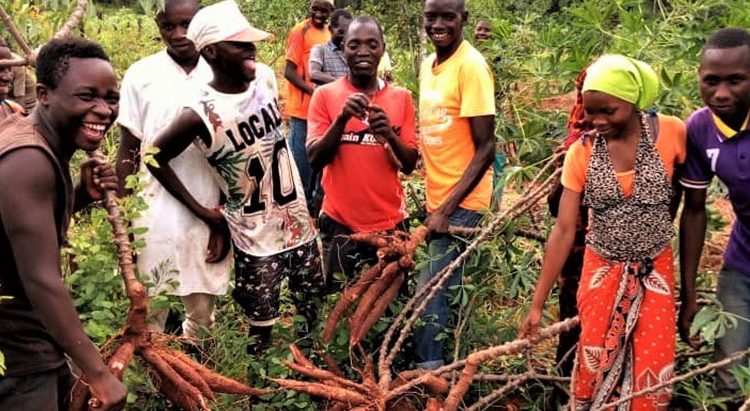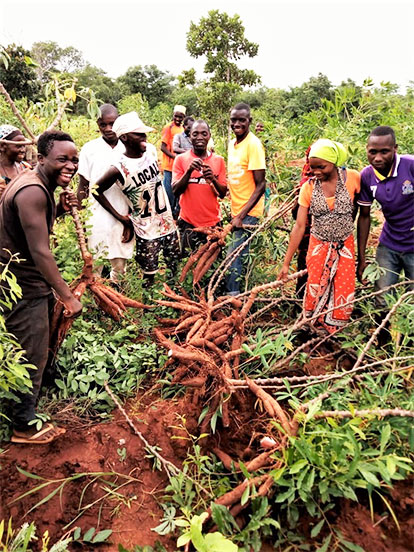
ACAI project: Upscaling cassava agronomy in Africa
IITA has commenced a new phase of the African Cassava Agronomy Initiative (ACAI) project to increase the availability of appropriate and affordable technologies to sustainably improve cassava productivity in sub-Saharan Africa.
The 5-year project, which is funded by the Bill & Melinda Gates Foundation, will focus on five countries: DR Congo, Ghana, Nigeria, Tanzania, and Uganda, to implement its mission, which is to develop and deploy cassava agronomy recommendation tools to intensify cassava farming, improve root starch quality, and reduce the yield gap.
The project seeks to engage 100,000 households and generate value worth US$28 million. ACAI plans to deliver the necessary knowledge base and tools for accessing this knowledge to cassava scaling partners and, ultimately farmers, in the target countries while instituting the needed capacity and skills for national system scientists to engage in transformative cassava agronomy.
The ACAI project has organized the work into six complementary and interdependent work streams: (1) Strategic research on cassava growth dynamics, nutrient and water requirements, (2) Geospatial modeling and development of GIS to support tool development, (3) Development of decision support tools for the six use cases, (4) Facilitation of the use of the decision support tools by the target clients, (5) Capacity development and institutionalization at the national system level, and (6) Project governance, management, coordination, monitoring, evaluation, and learning.
So far, ACAI has increased productivity and diversity of cassava-based systems and food security, improved income, and reduced poverty. It has also enhanced the continuity of cassava supplies to the market and processors and the sustainable use of natural resources and agro-inputs.

